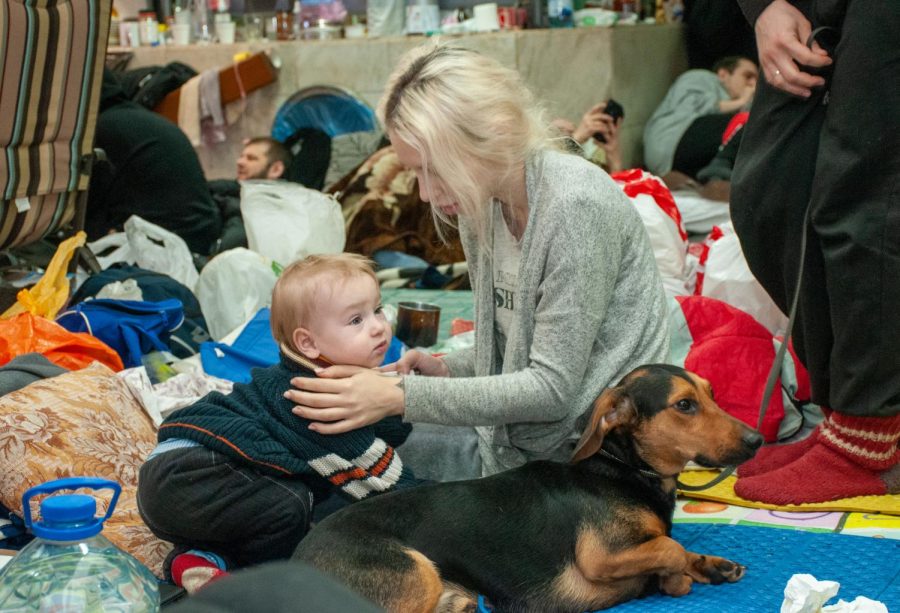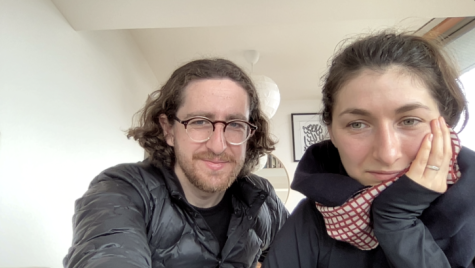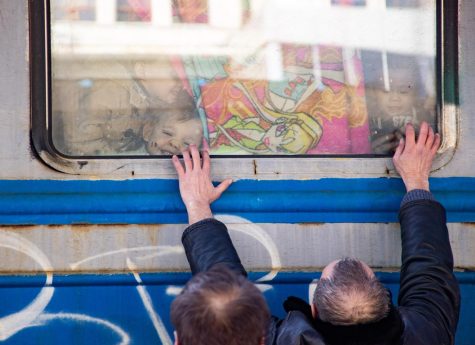War in Europe: Local Russians Condemn Putin, Propaganda
The war between Russia and Ukraine has caused an outpouring of support for Ukrainians all over the world. In neighboring countries, people are opening their arms to Ukrainians who have had to flee their homes, while farther away, people have started fundraisers and used social media to spread awareness.
Amid all the support for Ukrainians, Russians have often faced the burdens of stereotypes, misinformation and misunderstanding. Many Russians who know the true nature of the war have fled the country due to increasingly totalitarian repressions by the government, while ordinary Russians are struggling with economic sanctions and changes to everyday life.
“It’s very important to differentiate the fact that it’s not Russia, it’s Putin and the Putin administration and the government,” said Sasha Boudtchenko, a Russian-American senior attending Palo Alto High School. “It’s not like all Russian people are like ‘Yeah let’s fight Ukraine.’”
As major news outlets report on the devastation in Ukraine, many fall into hasty generalizations in headlines and video titles. This affects the audience’s perception of Russia -and Russians – as a whole.
“People will read headlines and just summaries, and not really read the whole article,” said a 17-year-old Russian immigrant who lived in Palo Alto until 2018 but now lives in the midwest and asked not to be named for privacy reasons. “Headlines are always like Russia, Russia, Russia. Well it’s not Russia, it’s Putin, it’s the Kremlin, it’s the Russian regime, it’s the government.”
In response to Russia’s attacks, dozens of other countries have imposed economic sanctions on Russia. These affect wealthy leaders and businesses, but also ordinary people.
“My grandparents have lost hundreds of thousands of dollars, they’ve lost so much money that they will probably never get back because of the way Russian banks are working right now,” said the anonymous Russian teen,
Olga Chumanskaya, an MBA candidate at Stanford University who has been organizing help to Ukraine, spent most of her life in Russia. She said there is a debate over the usefulness of sanctions, since Russia is not a democracy. People there cannot safely protest the sanctions and demand an end to the war.
“I do empathize with them because in reality they have no way to influence what is happening in the country,” Olga said.
While Russian-Americans worry about their relatives back in Russia, many also have loved-ones in Ukraine, too.
“The cultures are also very intertwined,” Sasha said. “There are many people who are Russians and live in Ukraine, and many Ukrainians who live in Russia. We’re not Ukrainian but we definitely have people living there and have personal connections.”
For the Russians within Russia who seem to support the war effort, it is likely due to the fact that they are hearing a false narrative of the situation through propaganda on state-run media. Russian TV broadcasts regularly promote a version that says Ukrainian forces are attacking their own people and Russia is just trying to protect its people.
“For people who are not proactive with obtaining that information or are not that digitally steady, the only option is the TV, which is just propaganda” Olga said. “And the level has gone insane.”
For some Russians, another challenge is grappling with how they feel about their identity.
“I do struggle when I hear people saying ‘Russians are bad’… I don’t feel like I’m ready to let go of my national identity because I am proud of the heritage of my country,” Olga said.
At the same time, she condemns what Russia is doing. “Any hardships that Russians might theoretically experience, they do not come even close to what our Ukrainian friends are facing,” Olga said.
The anonymous teenager, who also has family and friends in both Russia and Ukraine, said she doesn’t know “a single person” who supports Russia’s attacks.
“I spent a majority of my life in Moscow, and I don’t know anybody that supports this in any way,” the teenager said. “I’ve checked with almost all of them – those who can contact me.”
As Ukrainian communities around the world receive support, many Russian emigres are showing support for them while also experiencing judgement and fear.
“I think with all Russians living abroad, the duty lies to speak up because we are less exposed to risks,” said Olga. “It’s very important for me to say that, as a Russian person, I condemn the war.”





